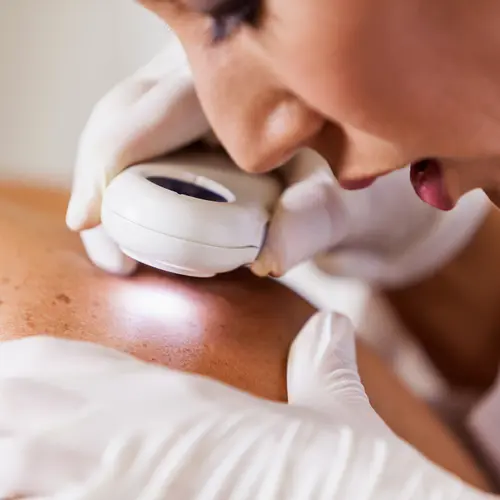The FDA has approved cosibelimab, a new drug for adults with advanced cutaneous squamous cell carcinoma (CSCC), a type of skin cancer. It is the first and only PD-L1 blocker approved to treat adults with CSCC that has spread to other parts of the body or is too advanced for surgery or radiation.
CSCC is the second most common skin cancer in the U.S., affecting 1.8 million people each year. Most cases can be treated with surgery, but around 40,000 become advanced and harder to treat, leading to about 15,000 deaths annually. Advanced CSCC can cause serious problems, especially in the head and neck, where it can damage blood vessels, nerves, and organs like the eyes and ears. It’s even harder to treat in people who have a weak immune system because the cancer is more aggressive, and treatments can have stronger side effects.
Cosibelimab, marketed under the brand name Unloxcyt, is a human monoclonal antibody, a type of drug that uses your body’s immune system to fight cancer. It works by blocking a special protein (PD-L1) carried by the cancer cells that allows the cells to hide from the immune system, promoting their growth and spread. In this way, Unloxcyt prevents tumor cells from evading the immune system, helping it to detect and attack cancer cells more effectively. Unloxcyt can also trigger the immune system to kill cancer cells directly, which sets it apart from other treatments for advanced CSCC. The medication needs to be injected as a 60-minute infusion every three weeks.
The effectiveness of Unloxcyt was studied in a clinical trial that included 109 patients with advanced CSCC who couldn’t be treated with surgery or radiation. Patients were not included if they had an autoimmune disease; severe heart disease; infections like HIV or hepatitis B or C; or if they'd had a recent organ transplant or prior immunotherapy.
The results showed that tumors shrank in 47% of patients with metastatic cancer and 48% of those with locally advanced cancer. The exact duration of response for metastatic CSCC varied, but patients with locally advanced CSCC responded for about 18 months.
The most common side effects were tiredness, muscle or joint pain, an underactive thyroid, diarrhea, constipation, nausea, headache, rash, reactions where the needle went in, and urinary tract infections.
Checkpoint Therapeutics, the maker of Unloxcyt, stated in a news release that Unloxcyt can cause serious immune-related side effects, including allergic reactions; inflammation in the lungs, liver, kidneys, and intestines; and hormonal issues like thyroid disorders, adrenal insufficiency, and type 1 diabetes. They have also included a warning that the drug may harm an unborn baby, so women who are pregnant or are planning to get pregnant are advised to consult their health care provider before starting and after finishing their treatment with Unloxcyt.


